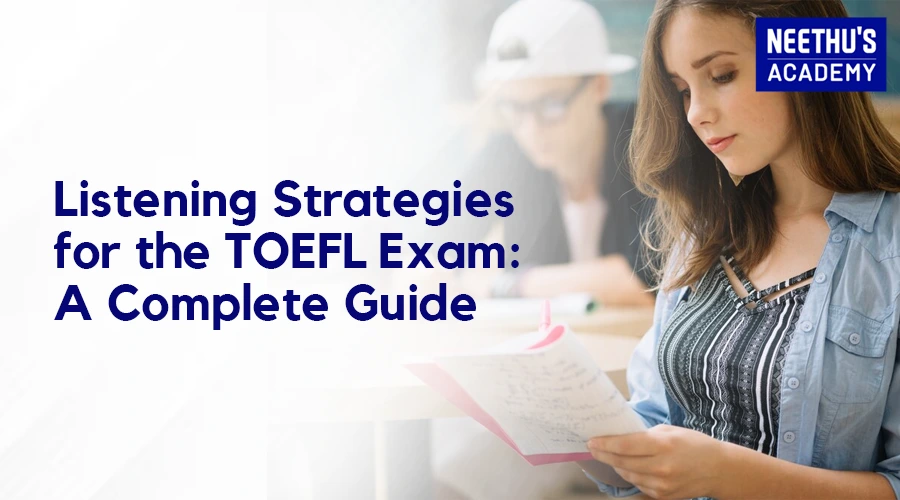TOEFL Independent Essay Tips: Score High with Ease
One of the two TOEFL Writing tasks is the Independent Essay task. For this, examinees should be able to express a given topic while showing organizational ability and elaboration on examples as well as good grammatical use while writing. This essay proves to be a do-or-die situation for many candidates applying to universities or work in English-speaking countries.
In this comprehensive guide, we will give you step-by-step tips, writing strategies, and preparation techniques on how to do the TOEFL Independent Essay so that you will get the high score you want.
Importance of the TOEFL Independent Essay Task
The Independent Essay Task is a test of your ability to write in the English language. This skill encompasses the following critical ones:
Language Proficiency: proper application of grammar, vocabulary, and sentence structures.
Argumentation: Logical reasoning and ability to present opinions using evidence.
Organization: presentation of ideas in a coherent, structured way.
Time Management: Within 30 minutes, complete a fully realized, polished essay.
Good performance on this section of the test shows your preparedness for academic demands and your ability to clearly communicate in writing an extremely valuable skill required to apply to an university or a job.
Understanding the TOEFL Independent Essay Task
Task Overview
In the TOEFL Independent Essay Task, you will be presented with a prompt that demands your opinion about a topic. The essay should include the following components:
- contain between 300 and 350 words
- Have an introduction, body paragraphs, and a conclusion
- Directly and clearly discuss all aspects of the prompt
Your score will result from the relevant and clear contents, your use of language, and the overall coherence of your essay
Common Topics
Though the subjects can be very different, they often fall into one of the following categories:
Education: For instance, “Do students learn more effectively through group work or individual study?”
Technology: “Is it making things easier, or is it just complicating things?”
Lifestyle Choices: “Is it better to live in a city or in a rural area?
Social Issues: “Should governments spend more on public transportation?”
Personal Preferences: “Would you rather travel alone or in a group?”
Familiarizing yourself with these themes and practicing the relevant prompts will make you feel better prepared for test day.
Independent TOEFL Essay Strategies
Analysing the Prompt
Starting a high-scoring essay requires understanding what is in the question.
Know your main idea: Know whether a particular question is required. Is it agreeing or disagreeing, comparing options, or indicating choice/preference?
Set Your Position: Make and maintain a clear stand. Varying between two choices can somewhat fog the reader.
Highlight Keywords: Focus on action words like agree, disagree, prefer, and key concepts in the question to ensure your essay remains on topic.
Structuring Your Essay
A well-structured essay helps your ideas flow logically. Follow this structure:
Introduction:
- Start with a hook to grab attention (e.g., a thought-provoking statement or a relevant question).
- Clearly state your opinion or preference in response to the prompt.
- Briefly outline the main points you’ll discuss in the essay.
Body Paragraphs:
- Write 2-3 body paragraphs, each based on a single main point.
- Lead with a topic sentence outlining the paragraph’s idea
- Provide examples, evidence or personal experiences to support your position
- End with a link sentence that brings the thought back to your thesis statement
Conclusion:
- Summarize briefly your main points
- Write your opinion in different words
- End with a strong closure, such as a prediction, recommendation, or insight
Writing Effective Arguments
A good-scoring essay is built on robust, well-supported arguments:
- Use concrete examples from your personal experiences, books, or current events.
- Elaborate on how each example supports your opinion. Refrain from vague or unsubstantiated claims.
- Make sure that ideas flow logically, so that each paragraph supports the central argument.
Time Management
Time is limited, and effective planning is eessential.
- Brainstorming (2–3 minutes): Quickly jot down your main points and examples.
- Write (20–25 minutes): Focus on filling out each section of the essay.
- Review (2–3 minutes): Look for punctuation errors, clarity, and completion of the prompt.
How to Improve Your TOEFL Essay Writing
Practice with Sample Prompts
- Use authentic materials or online resources from official sources.
- Write essays in a timed setting to mimic the test day experience.
- Study high-scoring essay samples from the TOEFL to see what was done right and why.
Expand Vocabulary and Grammar
Good vocabulary and grammar will make your essay better
Vocabulary: Learn the academic and transition words that include moreover, therefore, consequently, etc. to string ideas together.
Grammar: Focus on sentence variety, subject-verb agreement, and proper usage of tenses.
Proofreading and Editing
Always proofread your essay for quality.
- Look out for typos and grammatical errors
- Simplify overly complicated sentences
Make sure your response answers the question and stays on topic.
Common Pitfalls to Avoid
Writing Off-Topic
The most common error in writing is not answering the prompt. Avoid this by:
- Reading the question while writing and after writing
- Make sure every paragraph pertains to your thesis.
Overcomplicating the Essay
Some may use words that are too complex or sentences that are too long, making your writing hard to understand. Strive for clarity and simplicity.
Ignoring Transitions
Transitions are necessary for coherence. Use phrases such as in addition, on the other hand, and as a result to guide the reader through your arguments.
Preparation Materials for TOEFL Writing
Practice Tests and Mock Essays
ETS Authentic Resources: Get real practice tests and essay topics.
Websites: Websites such as TOEFL Resources and Magoosh present practice exercises and expert feedback
Study Guides and Online Utilities
Books: The Official Guide to the TOEFL Test offers valuable information and exercises.
Tools: Tools like Grammarly and Hemingway Editor will indicate any errors and improve writing clarity.
Conclusion
Independent essay task in TOEFL requires a lot of planning, skill-building, and practice. It requires a very strategic analysis of a prompt, structuring an essay properly, and avoiding frequent mistakes, thus allowing you to write a good essay that would result in a high score demonstrating one’s proficiency in the English language.
Always practice, learn new words, and perfect your grammar. Dedication and use of the methods provided in this article will guarantee success in tackling the Independent Essay Task on the TOEFL exam as well as attaining a targeted score.
Good luck and happy writing!
Frequently Asked Questions





